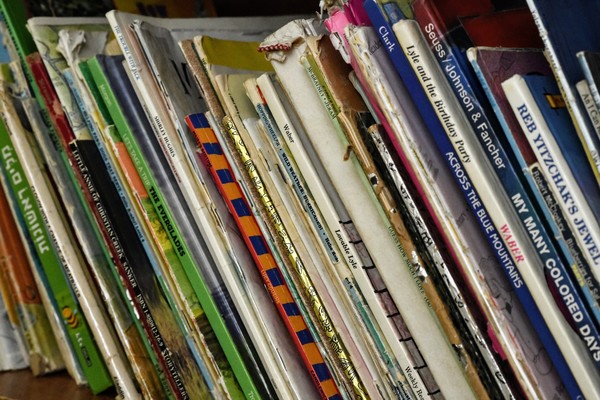On the censorship of children’s literature

WITH CHILDREN’S Day on May 5, people start to consider the ideals they wish to cultivate in the future generation. Children’s literature in the form of picture books is essential in instilling important values during childhood. The books in this selection have had a history of either being banned from children’s fiction sections or have been requested to be removed from libraries and classrooms due to their “alternative” messages. However, as the world has undergone a social and political transformation, these messages have found alignment with current social mores and gained wider acceptance.
And Tango Makes Three by Justin Richardson and Peter Parnell
Based on a real story, And Tango Makes Three (2005) follows two male penguins, Roy and Silo, and their parenting journey. During its initial circulations in libraries, the book caused an uproar among parents due to its Lesbian, Gay, Bisexual, Transgender, Queer and other (LGBTQ+) themes and placement in the children’s fiction section. In separate incidents from 2006 to 2020, the book was banned in various U.S. and U.K. libraries. Eventually, most libraries lifted the bans and kept the book[1]. Critical parents asserted that the book’s non-heteronormative ideas did not abide by district’s sex education policies, and that its messages on queerness and family values were incompatible[1].
As LGBTQ+ issues were still contentious during the 2000s and 2010s, it is understandable why And Tango Makes Three faced resistance. Now, with the decriminalization of same-sex relations and legalization of gay marriage in 23 countries[2], public attitudes towards non-heteronormative ideals are improving, making the book an appropriate read for children growing up in progressively LGBTQ+ inclusive societies.
Showing Roy and Silo as “just like the other [heteronormative] penguin couples,” the book conveys how non-heterosexual relationships experience love similarly, even depicting them as capable parents who share parental duties. At the end, Roy and Silo’s first swim in the enclosure with their chick, Tango, receives applause from the child visitors who readily accept the unconventional family. This meta-scene primes young readers of the book to likewise accept non-heteronormative families.
The Name Jar by Choi Yang-sook
The Name Jar (2001) traces the journey of a young Korean girl, Unhei, who has just moved to the United States. A bullying incident regarding her name causes Unhei to introduce herself as nameless to her new class, and her classmates consequently create a name jar to which they contribute names for her. Aided by a new friend Joey and her classmates, Unhei eventually learns to embrace her Korean name and identity. The book was part of a 2022 book donation to the Northampton school district in Philadelphia by The Conscious Kid, a non-profit U.S. organization focused on fostering healthy racial identity[1]. Due to parents’ opposition, the book was shelved indefinitely but was ultimately admitted into school libraries[1]. Objecting parents believed the book was founded upon the radical Critical Race theory[3], and that its highlighting of cultural differences would ignite racial segregation[1].
Contrarily, disregarding these differences and difficulties lead to greater conflict due to a lack of cultural awareness. Freedom of cultural expression enables diversity and inclusion. In viewing her name as symbolic of her ethnic community, Unhei realizes the importance of retaining her cultural identity in a foreign environment. Her self-acceptance is urged by Joey, who upon learning about the Korean custom of name-stamps, gets one engraved with “chin-gu” or friend. The Name Jar is hence a moving tale of not only self-acceptance, but of cultural awareness and connection.
The Librarian of Basra by Jeanette Winter
Wartime in Basra, Iraq forces a librarian to save the library’s books from destruction, under the noses of Iraqi military troops. Based on the true story of Alia Muhammad Baker, the chief librarian at the Al Basrah Central Library in Basra, The Librarian of Basra (2005) has faced two counts of challenges: Johnson City schools in New York (2014) and Duval County schools in Florida (2016)[1]. Parents voiced concerns over the book’s wartime premise and its references to “the Koran and praying to Muhammad” which seemed to promote Islamism, a non-Christian faith[1].
Although it is debatable whether the concept of war should be introduced to young children, the book allows children to comprehend the volatility of the world alongside the existence of people with inclinations to do good under dire circumstances. When the book depicts neighbors uniting to aid the librarian in stashing away the library books, the value of community is emphasized. Even as the sadness of wartime is expressed through the illustrations of the librarian’s desires for peace, one can glean the importance of maintaining harmony. The book’s allusion to Islamism and the Koran is referenced by the library as a spiritual place containing “a biography of Muhammad.” It furthers this message of peace by exposing young readers to various religions early on in childhood—leading to interfaith dialogues and religious acceptance.
* * *
Reading diverse stories is key to the formation of critical literacy in early childhood, which aids children in attaining different worldviews. These books promote acceptance of various sexual, cultural, and racial identities. By allowing young children to absorb these messages, they can be prepared to engage in an ever-evolving and increasingly interconnected global scape.
[1] Marshall Libraries
[2] World Economic Forum
[3] Critical Race theory: A theory that uses racial identity as the means for extreme socialist ends

